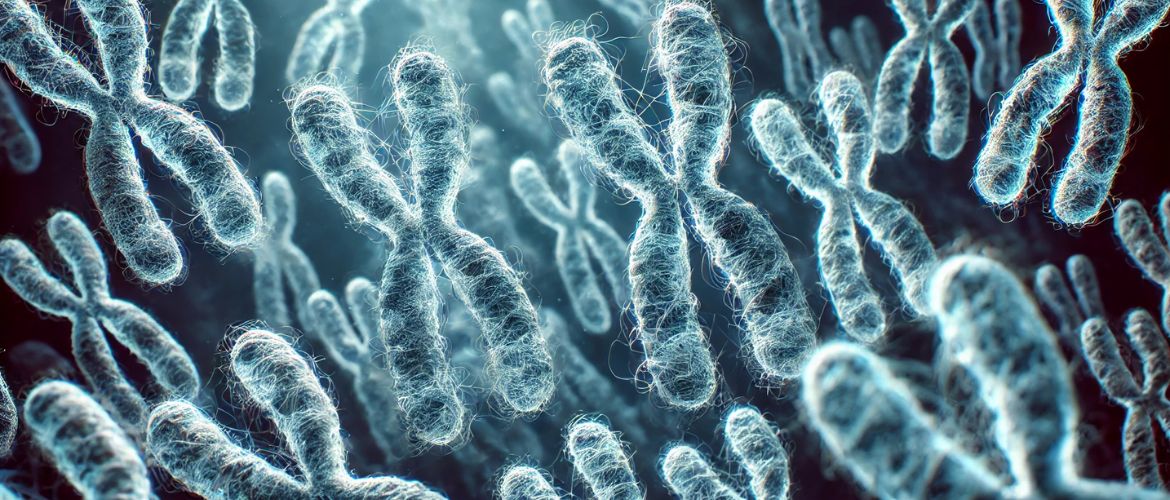A human has 46 chromosomes (23 pairs). Half of them are inherited from the mother, while the other half comes from the father. These structures contain all the genetic information that determines development, physical traits, and hereditary characteristics.
Early Discoveries
Chromosomes were first observed in the 19th century under a microscope. In 1882, German biologist Walther Flemming described the process of cell division (mitosis) and discovered specific structures in the cell nucleus that transmit hereditary traits.
The Genetic Revolution
In 1956, scientists Joe Hin Tjio and Albert Levan established that humans have 46 chromosomes. Previously, it was believed that there were 48, but more precise methods allowed for the correction of this information.
What Are Chromosomal Anomalies?
Sometimes, mutations occur in the body, leading to changes in the number or structure of chromosomes. This can cause genetic disorders:
- Down syndrome – occurs when there is an extra 21st chromosome (trisomy 21).
- Klinefelter syndrome – affects males who have an extra X chromosome (XXY instead of XY), which can influence sexual development.
- Turner syndrome – affects females who lack one X chromosome (XO), impacting growth and reproductive functions.
Differences Between Male and Female Chromosomes
A person’s sex is determined by the 23rd pair of chromosomes:
- Females have two X chromosomes (XX).
- Males have one X and one Y chromosome (XY).
The Y chromosome plays a key role in the development of male characteristics, while the X chromosome contains genes that influence many biological processes.
Interesting Facts About Chromosomes
- Human genetic material is 98% similar to chimpanzee DNA.
- The longer the telomeres, the longer a cell lives. Telomeres are the end sections of chromosomes that shorten with age.
- Some people are born with extra chromosomes and may not even be aware of it – in rare cases, anomalies do not cause noticeable symptoms.
- Genetic research helps predict disease predisposition, which could lead to personalized medicine in the future.
Humans have 46 chromosomes, 23 pairs inherited from their parents. They determine all hereditary traits and influence the body’s development. Despite the vast genetic variations, science continues to study chromosomes to unlock their secrets and improve medical technologies.
Read also: how long can you not eat after a tooth filling?







Only registered users can leave comments